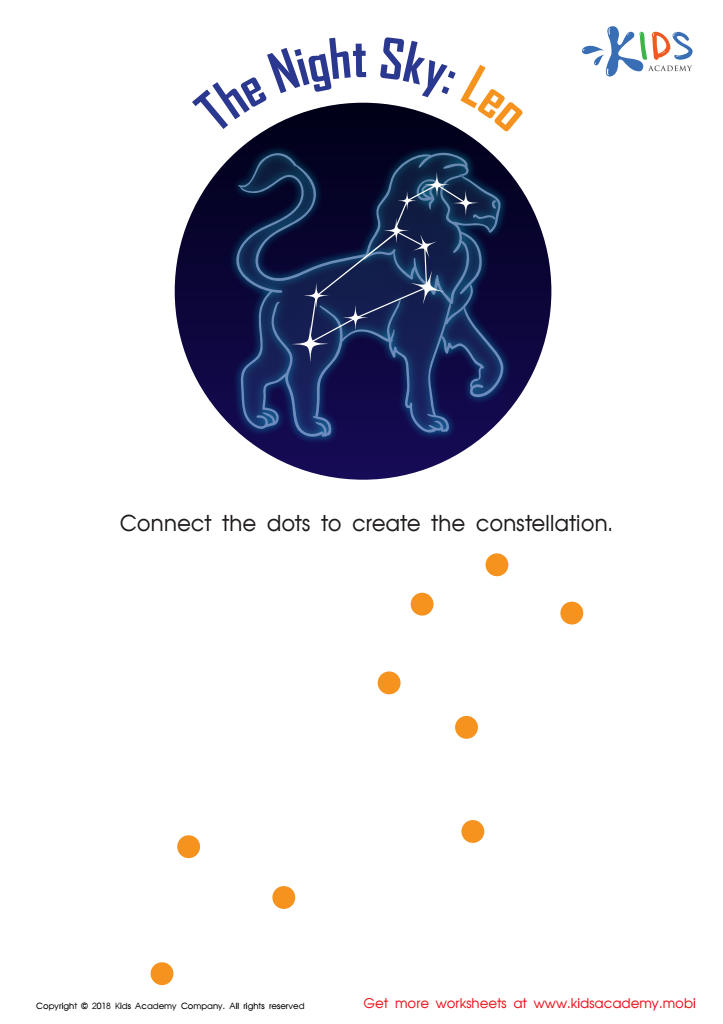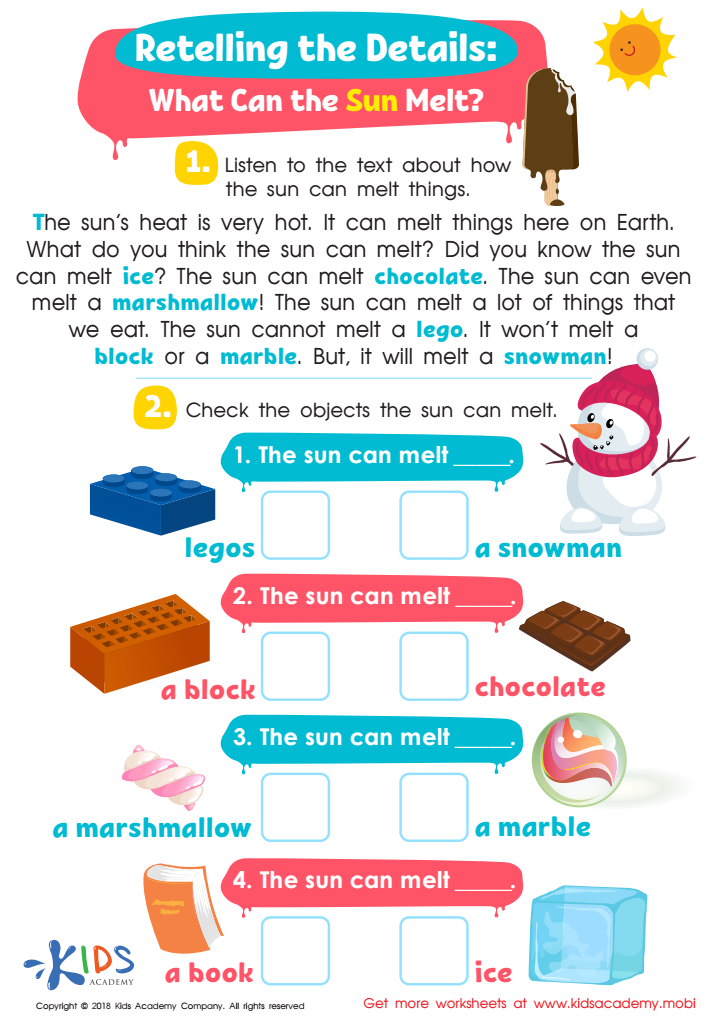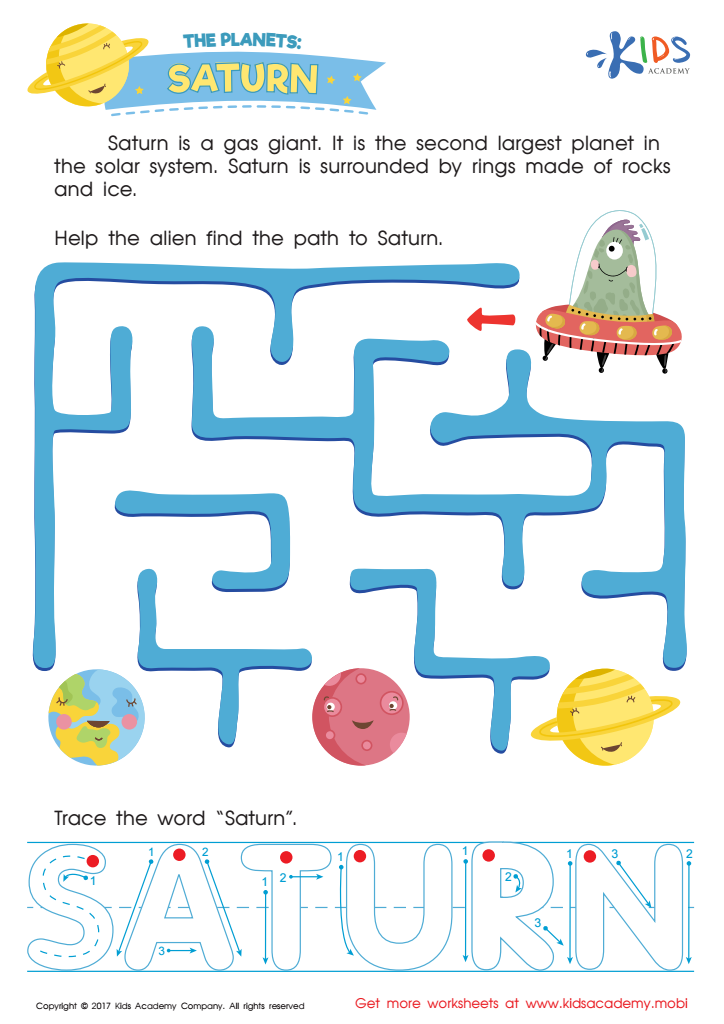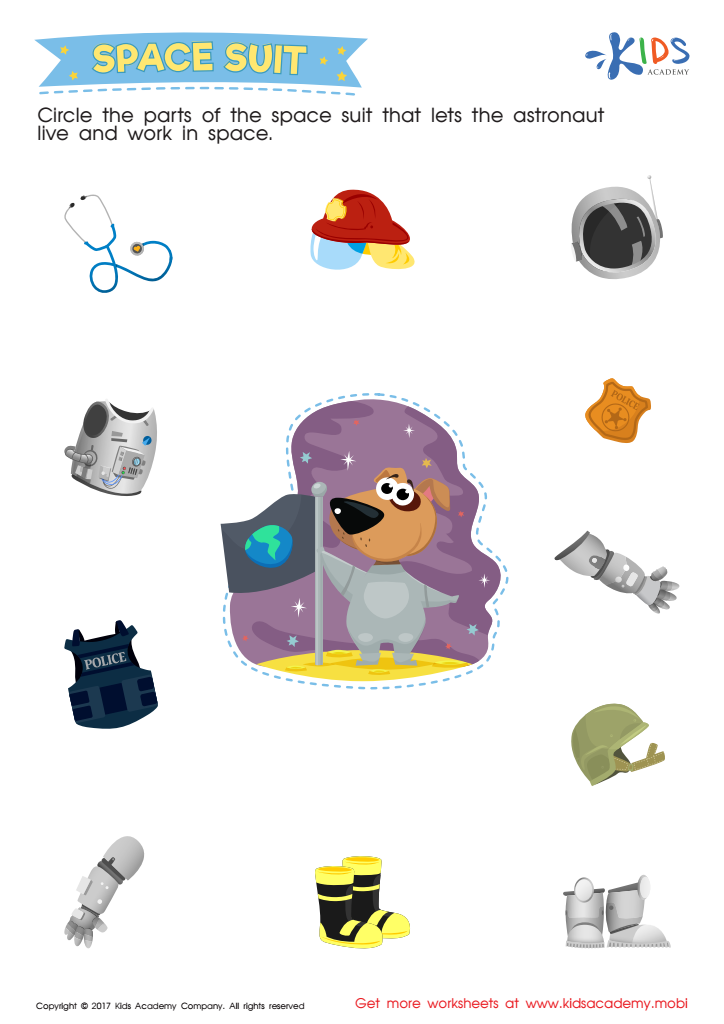Reading comprehension Normal Space Worksheets for Ages 3-6
5 filtered results
-
From - To
Explore our engaging Reading Comprehension Normal Space Worksheets designed specifically for young learners aged 3-6! Packed with fun and age-appropriate activities, these worksheets help children develop their reading skills while exploring the fascinating world of outer space. Each worksheet encourages imaginative thinking and critical understanding through vibrant illustrations and simple text. Kids will delight in activities that challenge them to comprehend short stories, answer questions, and connect with exciting space themes. Perfect for at-home learning or classroom enrichment, our worksheets nurture early literacy skills and spark curiosity about the universe, laying a strong foundation for lifelong learning. Dive into the universe today!


The Night Sky: Leo Worksheet


Retelling the Details: What Can the Sun Melt? Worksheet


The Planets: Saturn Printable


Space: Assessment 2 Worksheet
Reading comprehension in early childhood, particularly for ages 3-6, is crucial for a child’s future academic success and overall development. The "Normal Space" for reading comprehension encompasses not just the ability to decode words but also to understand, interpret, and connect ideas within texts.
For parents and teachers, focusing on this early stage of reading comprehension fosters vocabulary expansion, enhances critical thinking skills, and promotes better communication abilities. During ages 3-6, children are naturally curious and absorb language readily. Quality interactions with texts—through storytelling, discussions, and questions—build a strong foundation for literacy.
Developing comprehension during these formative years also influences a child’s social-emotional growth; it helps them relate stories to their own experiences, fostering empathy and cultural awareness. Furthermore, early comprehension skills are linked to lifelong learning behaviors; engaged readers tend to be more successful academically and enjoy reading more as they grow.
Parents and teachers play an integral role as role models, guiding children in exploring stories and fostering a love for reading. By prioritizing comprehension within the "Normal Space," caregivers ensure that children not only learn to read but also gain the ability to comprehend and engage with the world around them.
 Assign to My Students
Assign to My Students

















